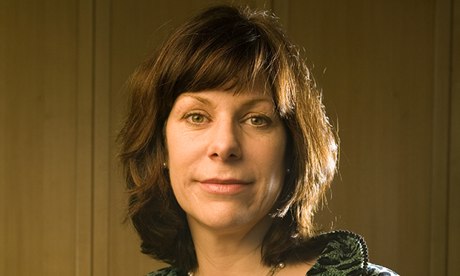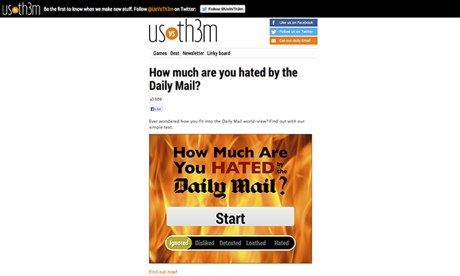"Why and with what success are traditional media institutions adapting to the challenge posed by new/digital media?"
Introduction:
- Identify what is traditional and new/digital media (NDM stories to help/examples)
- Outline about News Corporation, what it is? who owns it? What it owns?
Paragraphs:
- About Rupert Murdoch and News Corporation
- Print institutions into online content (Is it the same? two examples)
- Two Examples of print institutions and online content developed
- What is more successful, pay wall, subscribers and etc
- New technology developed therefore new/digital media institutions developed.
- The cost for all new/digital devices for the two examples and how it benefits the audience
- What demographics/psychographics are being targeted (primary/secondary)
- Decline in newspapers and magazines
- Why traditional media has died (User generated content, citizen journalism)
- Pay wall causing decrease in pay wall
Conclusion:
My opinion about the statement
Sunday, 24 November 2013
Weekly NDM story...
Daniel Radcliffe tells celebrities: social media, or a private life – your choice. Harry Potter star says he shuns spotlight wherever possible – and that stars who do otherwise forfeit the right to privacy...

Stargazing … Daniel Radcliffe shuns social media.
Harry Potter star Daniel Radcliffe says Celebrities who are ever present on social media cannot expect to have a private life. He had told Sky News that he has chosen not to have Twitter and Facebook to avoisd ubiquity in the public spotlight and has become very successful being private, celebrities who post every minute on social sites such as Twitter, of what they are doing or where they are immediately drags the public (paparazzi) therefore claiming they want a private life would be impossible. Radcliffe is a successful career in film and TV since the Harry Potter series ended.
- Not having social media sites makes your life more private for celebrities.
- Social sites attract an audience.
I agree with Daniel Radcliffe, I think he has an point about social media sites and celebrities. The fact celebrities update their status on sites like Twitter revealing what they are doing ever minute would definetly attract an audience causing a scene obviously. If celebrities want a private life why would you post certain things on social sites if you well know that an audience will be attracted. I think it is a clever way of Radcliffe not having social media sites as it would keep his lifestyle more private.
Weekly NDM story...
Facebook and Twitter should block anonymous messages – PM's adviser. Claire Perry, David Cameron's adviser on child internet safety, says option from internet firms would reduce bullying online...


Tory whip Claire Perry, David Cameron's adviser on child internet safety has called on Twitter and Facebook to allow the blocking on anonymous messages. Photograph: Richard Saker.
David Cameron's advisor on child internet safety had said that 'Twitter and Facebook should let users block anonymous messages if they are serious about stopping bullying and trolling on social media sites'. If the audience had more control in whether to choose to block communication from anonymous users would risk bullying however as the internet has no control of cyber-bulling, she described online threats as misogynistic. As Perry has been an victim of online threats she strongly agrees to an online verification process whether to feal with users who have supplied their real names or chosen to remain anonymous. She feels social media sites do not do enough to prevent all these online threats and bullying, Perry has been receiving online Twitter abuse over the summer. Perry states "People post about how they'd like to rape you and kill you because they think you don't know who you are. If there was some way of the company knowing and being prepared to verify that identify and to show you that verification, I think it would lead to a diminuation in that kind of behaviour. I don't think the companies do enough and I think there is a great concern around it given the US legal framework around which the global companies operate." Moreover as Perry is the prime minister's advisor on the commercialisation and sexualisation of children, concentrating on the impact of pornography she also feels to work on the issues on bulling online as its impacted many young people.
- Social media sites do not do enough to stop anonymous users.
- The younger audience is mostly impacted in this issue.
- Social sites should allow users to block communication with anonymous users.
- Bullying can reduce if verification process is allowed.
Overall I agree with Perry as bulling is a huge issue on social media sites, it has impacted many people of different demographics, especially the younger generation as they are more likely to be on these social media sites. There has been many dramatic events in the past and now about bullying as it has come to suicide and effecting many peoples lives. The process of verification whether the user is real should be considered and the fact users should be allowed to block anonymous users should definitely be allowed to avoid being an victim of bullying. I strongly disagree with bullying behaviour.
- Social media sites do not do enough to stop anonymous users.
- The younger audience is mostly impacted in this issue.
- Social sites should allow users to block communication with anonymous users.
- Bullying can reduce if verification process is allowed.
Overall I agree with Perry as bulling is a huge issue on social media sites, it has impacted many people of different demographics, especially the younger generation as they are more likely to be on these social media sites. There has been many dramatic events in the past and now about bullying as it has come to suicide and effecting many peoples lives. The process of verification whether the user is real should be considered and the fact users should be allowed to block anonymous users should definitely be allowed to avoid being an victim of bullying. I strongly disagree with bullying behaviour.
Monday, 18 November 2013
NDM Summary 14/11/13...
16/07/13: iPhone 5S – first impressions...
22/07/13: Apple iPhone fingerprint sensor hacked by Germany's Chaos Computer Club...
30/07/13: BBC must realise that children choose TV programmes, not branding...
Tesco's £119 Hudl tablet hits stores...
07/08/13: Google takes down more than eight 'pirate' links every second...
16/08/13: Yes, Angry Birds Go! could knock Nintendo's Mario Kart off its perch...
27/08/13: BBC iPlayer...
Metro website traffic soars by a third as mobile revamp pays off...
08/09/13: Daily Mail quiz powers UsvsTh3m towards 3m users...
11/09/13: BBC undermining local newspapers...
20 best Android apps and games this week...
NDM stories total: 11
22/07/13: Apple iPhone fingerprint sensor hacked by Germany's Chaos Computer Club...
30/07/13: BBC must realise that children choose TV programmes, not branding...
Tesco's £119 Hudl tablet hits stores...
07/08/13: Google takes down more than eight 'pirate' links every second...
16/08/13: Yes, Angry Birds Go! could knock Nintendo's Mario Kart off its perch...
27/08/13: BBC iPlayer...
Metro website traffic soars by a third as mobile revamp pays off...
08/09/13: Daily Mail quiz powers UsvsTh3m towards 3m users...
11/09/13: BBC undermining local newspapers...
20 best Android apps and games this week...
NDM stories total: 11
WWW: I post up new NDM articles every week so I am up to date with the news and other social activities happening each week. It allows me to recap the exam question and practice my understanding of the question. I think I have structured my articles very well as I always include a short summary or the story, bullet down key stastics and then share my own opionin at the end. Overall I think I have varied in media topics as I have focused on the news, magazine, social sites like YouTube and television.
EBI: One thing I need to improve on is to highlight and underline my keywords, as it would soon help me in my exam revision.
Monday, 11 November 2013
Weekly NDM Story...
20 best Android apps and games this week....

Star Wars: Tiny Death Star is free to play on Android.
Here are this weeks brand new and notable apps for Android smartphones and tablets have been released, the chart covers apps as well as games, some are free.
APPS...
1. Helpouts (Free)
2. Google Text-to-Speech (Free)
3. JumpCam - Friends Video Camera (Free)
4. Band of the Day (Free)
5. Movember Mobile (Free)
6. HPI Check (Free)
7. Kids Learn English with Busuu (Free)
8. Bump builder (Free)
9. Dayframe (Free)
10. ESPN Fantasy Basketball (Free)
Games...
11. Star Wars: Tiny Death Star (Free)
12. Rayman Fiesta Run (£1.99)
13. Thor: TDW - The Official Game (Free)
14. CastleVille Legends (Free)
15. Luxuria Superbia (£1.87)
16. Principia (£2.76)
17. Meltdown (Free)
18. Burn The Lot (£0.62)
19. Call of Duty (Free)
20. Iittle Dew (£4)
The apps have become very popular on Android devices as a large audience especially the younger demographic audience use it, moreover it is free so children would be more likely to be the users.
Weekly NDM story...
BBC undermining local newspapers, says Theresa May, Home secretary says corporation claims activities such as online are opening up new markets, when in fact it is dominating them...


Theresa May said it would be a 'sad day' if the BBC helped bring about the demise of local newspapers such as the Maidenhead Advertiser.
The Home secretary Theresa May the Conservative MP has warned the BBC of its online news operation is undermining local newspapers. The MP talks about the Society of Editors conference in London, that the BBC had claimed it was opening up markets with its activities when it was dominating them instead.
"There is a real need for the BBC to think about its own position and what it is doing and the impact it has," she said. "If the BBC can provide all the locally-significant news, what reason is left for local people to buy a newspaper? That's as dangerous for local politics as it is for local journalism. "The BBC has to think carefully about its presence locally and the impact that has on local democracy. "May said it would be a "sad day" if the BBC helped bring about the demise of local newspapers such as her own, the Maidenhead Advertiser. "As the local MP I value my ability to raise issues in my local newspaper... It is fiercely independent and influential, people read it because it tells them what is happening and it would be a sad day if the might of the BBC affected its availability," she said.
- Renewal of its royal charter in 2017.
- BBC could face a cut in the licence fee or have to share it with other broadcasters.
- BBC3 and BBC4 could be axed to prevent programming spend being spread too thinly.
- What reason is left for local people to buy a newspaper?
I personally think, most people do not buy newspapers as much any more as some audiences have access to the online version. Why should they buy newspapers when they could get it online most people would ask, therefore the new generation wouldn't even buy newspapers whereas an old generation would as it would be tradition.
Virtual Revolution...
The Great Levelling...
- Broadband in Africa
- Ghana first place to access internet
- Content to be replaced with the internet revolution
- Web created wealth
- Blame to creation of web addicts
- Impact on daily lives
- Digital divide: digital haves'digital have nots
- Challenges authority vs. Spying/censorship
- Distributes images, videos, posts etc.
- How the web is remaking the world?
- Web is where we spend our money
- Manchester and Central most logged on to sites
- West London most blogs created
- Wikipedia is free and under comes authority, knowledge, ordinary people
- The 'Well' created social sites such as Facebook
- Self expression should have no limits
- Internet and Industrial revolution
- Challenges business models
- Power to people, equal access to voices
- Accuracy? on Wikipedia
- Web link pages delivered to us
- Resists authority (can't control)
- URL (unique address for a document)
- Free 'Open source'
- Altair 8800
- To share music for free rather than buying it (Napster)
- Theft and privacy
- Hybrid future (old and new media, millions of voices)
- Paradox
- Limited place for cultural freedom
- The web levelling days are over?
- The web has one market place, one social place, one bookshop etc.
Statistics/Facts and Dates...
- 1960's Libertarianism
- 1965 'Email' was introduced
- 1985 'The Well' was created in Sans Francisco
- 1991 the first website created online
- 1995 'Internet Explorer' was launched
- 1999 'Napster' was created (Music privacy)
- 2001 'Napster' was restricted/closed
- 2005 the first video was published on 'YouTube'
- 35 million logs on in the UK
- 5 million dating in the UK
- 40% of men watch porn
- 18 million people read blogs in West London
- 90% of the market was owned by Microsoft (monopoly, corporate ideology, monetize)
- 95% of music was not paid for
- More than 1 million hits a day (UGC)
- 130 million blogs
- 21 million visit 'Ebay' a month in the UK
- 16 million visit 'Amazon' a month in the UK
- 38 million search for 'Google' around the world
- 90% of blogs are 'dormant'
- 2 billion online
Important People...
- Aleks Krotoski the Journalist of the documentary
- Sir Tim Berners-Lee Inventor of WWW
- Einaer contributor of Wikipedia
- Stewert Brand creator of The Well
- Ory created a wevsite called 'Ushahidi' people posting up abuses
- Charles Leedbeater author of 'We Think'
- Bob Finch a Rocket fanatic
- Chad Hurley is the co-founder of 'YouTube'
- Jimmy Wales is the co-founder of Wikipedia
Quotes from Important people...
- "It's all about letting people share information" Bill Gates
- "Paradigm shift on a par with the printing press" Ory
- "Exciting and revolutionary prospect" Al Gore
- "The internet was a challenge to authority" John Perry Barlow
-"Connecting humanity" Tim Berners-Lee
- "How mankind communicates" - Bill Gates
- "Empowering Tool" Al Gore
- "Internet powering brain" Bill Gates
- "Against Wikipedia" Lee
- "The web is inventing society" Aleks Krotoski
UsVsTh2m...
UsVsTh3m...

The websites main colours are orange, black and white, the information is centred in the middle of the page. It includes bold headings of news stories and images about the story, the headings also have hyper links. The website allows the audience to view new stories from audiences opinions and views, as they have made a quiz or game about the story (UGC).
Buzzfeed...
Founder of Buzzfeed Jonah Peretti on why viral videos are as vital as investigative journalism - Advertising Week New York video...
Founder of Buzzfeed Jonah Peretti on why viral videos are as vital as investigative journalism - Advertising Week New York video...
The site's cheif executive tells Mark Sweney that Edward Snowden'd NSA revelations endorse the company's strategy of putting more resources into investigative journalism – but stresses that the site will stay true to its viral roots.
Friday, 8 November 2013
Weekly NMD Story...
Daily Mail quiz powers UsvsTh3m towards 3m users. Daily Mirror publisher to follow Buzzfeed-style site offering socially shareable content with new data journalism project...

UsVsTh3m's Daily Mail quiz: hailed by social media users
The Daily Mirror has recently published an online social content where the audience are able to create their own quizzes about the news, sports, social media etc. The social website is called 'UsvsThe3m' publisher's Buzzfeed-style, it was expected to reach 3 million unique users in October after publishing a quiz about the Daily mail called 'How much are you hated by the Daily Mail?'. The website is intended to quickly develop humorous interactive quizzes and games based on current news and events, users are able to share their scores, games and quizzes via social media. "Sharing stuff socially says something about you," said Trinity Mirror product director Malcolm Coles. "People want to identify with something that reflects their personality and says something about themselves. People were pleased that the Daily Mail hated them." Trinity Mirror which follows up UsVsTh3m, launched without fanfare in May, with a new venture, Project Y, focusing on "socially shareable data journalism".
- Trinity Mirror is forecasting that the site will pass the 3 million monthly unique user mark at about lunchtime on Thursday, almost tripling the number of users recorded in September.
- 1.25 million users, came from people playing and sharing the tongue-in-cheek Daily Mail quiz.
- User generated content about audiences view/opinion on current events and news.
- Allowed to share videos, games and quizzes.
I think this is a great idea that the Daily mirror has published this website as audiences are able to publish their own opinion/views about the news and current events that are happening. It allows audiences to create videos, games and quizzes for others to use and also user generate content so audiences are able to share views. Its kind of like citizen journalism as audiences make their own footage about news and publish it on social websites like this for others to comment on.
Subscribe to:
Posts (Atom)